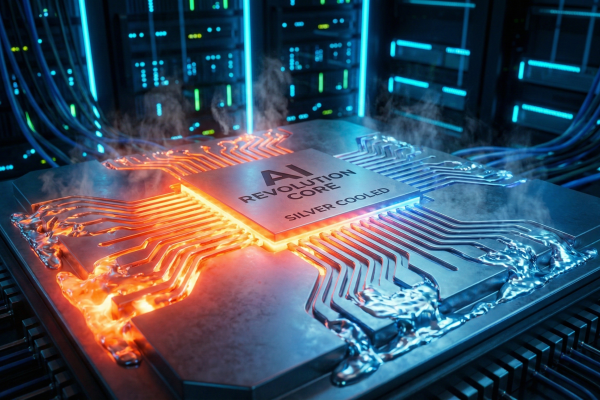December 30th, 2022 | 17:52 CET
BioNTech, Defence Therapeutics, Pfizer - The cards are being reshuffled
The Corona pandemic is seemingly coming to an end after almost three long years. The return to normality, now in China and the rest of the world, is a relief for society and the economy. In contrast, vaccine manufacturers are losing a billion-dollar business that is difficult to compensate for with products in other areas of application. Nevertheless, the stock market valuations of the vaccine producers continue to be exorbitantly high, as does their drop in value.
time to read: 4 minutes
|
Author:
Stefan Feulner
ISIN:
BIONTECH SE SPON. ADRS 1 | US09075V1026 , DEFENCE THERAPEUTICS INC | CA24463V1013 , PFIZER INC. DL-_05 | US7170811035
Table of contents:

"[...] Defence will continue to develop its Antibody Drug Conjugates "ADC" and its radiopharmaceuticals programs, which are currently two of the hottest products in demand in the pharma industries where significant consolidations and take-overs occurred. [...]" Sébastien Plouffe, CEO, Founder and Director, Defence Therapeutics Inc.
Author
Stefan Feulner
The native Franconian has more than 20 years of stock exchange experience and a broadly diversified network.
He is passionate about analyzing a wide variety of business models and investigating new trends.
Tag cloud
Shares cloud
Single-product company seeks alternatives
The abrupt end of the "Zero-COVID policy" in China caused a sigh of relief around the globe last week. The return to normality should now be set. Even the well-known and previously very cautious virologist Christian Drosten considers the Corona pandemic in Germany to be over. This winter was the first endemic wave, he told "Tagesspiegel". Justice Minister Bushman also calls for the end of all Corona measures as a consequence.
The announcement of the end of the pandemic is likely to have put global vaccine manufacturers on high alert, especially if, as is the case with BioNTech, the Corona vaccines are the only products marketable to date, which, looking at the product pipeline, is unlikely to change in the near future. Although the Mainz-based company repeatedly emphasizes that it is driving forward the field of oncology based on mRNA technology, experience has shown that it will probably be years before actual approval is granted.
In addition, BioNTech and its US partner Pfizer have developed a combination vaccine that could be used in the future to vaccinate against Corona and influenza at the same time. This has been included in an accelerated approval process by the US Food and Drug Administration (FDA). Whether this vaccine will be well received once approved is questionable. Currently, BioNTech's market capitalization is USD 36.82 billion, despite correction. As of September 30, 2022, the Company had high liquidity of EUR 13.4 billion and trade receivables of EUR 7.3 billion. For the full year 2022, the Mainz-based company still expects between EUR 16 and 17 billion in sales. For 2023, the decline in sales and earnings is likely to be drastic, should the Corona pandemic be over.
From a chart perspective, the situation does not look any better. After bouncing off the high for the year at USD 188.82, the share fell back into its broad sideways channel with high volumes, which marks the low for the year at USD 117.48 as the lower edge. RSI and MACD gave a fresh sell signal on a weekly basis, so a further slide into this region or below appears likely.
Completely new possibilities against cancer
Compared to BioNTech, the Canadian biotech company Defence Therapeutics, with a market capitalization of USD 69.71 million, is far from exaggerated. That is because the Canadians' highly scalable platform technology has the potential to develop the next generation of vaccines and ADC products. At the core of the Defence Therapeutics platform is ACCUM technology, which enables the precise transport of vaccine antigens or ADCs in the intact form to target cells. As a result, improved efficiency and efficacy against serious diseases such as cancer and infectious diseases can be achieved.
Currently, Defence Therapeutics is working on combining its ACCUM technology with mRNA vaccines. This research program will not only impact the field of cancer immunotherapy but can also be directly applied to developing new vaccines against infectious diseases. For example, the Canadians have demonstrated that while "pure" mRNA can indeed be immunogenic, the humoral antibody response generated against the vaccine is very weak. The Defence team is therefore working with a private European company to synthesize mRNA vaccines in conjunction with ACCUM. The goal is to directly compare ACCUM-linked and "pure" mRNA vaccines in terms of their potential to generate an immune response that can eradicate and control existing tumors. According to Defence Therapeutics CEO Sebastien Plouffe, the ACCUM mRNA vaccine is expected to be in production by the end of 2023. After that, in vivo studies will be initiated in animals with existing solid tumors. "Once completed, Defence will have its 100% proprietary ACCUM-linked cancer mRNA vaccine. Defence will also be able to license its customized ACCUM technology to any pharmaceutical company with mRNA vaccines," he added.
Groundbreaking results
Also groundbreaking were the results of a preclinical study using the intranasal formulation of AccuTOX in the context of animals with existing lung cancer. The study showed that administration of AccuTOX as a combination therapy with the immune checkpoint inhibitor PD-1 antibody dramatically reduced the number of lung nodules compared to animals in the untreated or PD-1 antibody-treated control group. This 50% reduction in cancer nodules in animals with existing lung tumors was achieved with a treatment schedule of just 6 doses administered over a 2-week period with the combination of AccuTOX and PD-1 antibodies. Defence is currently preparing its meeting with the US Food and Drug Administration (FDA) to seek approval to initiate a Phase I trial for the treatment against solid tumors in 2023. According to Precedence Research, the global lung cancer therapeutics market was valued at approximately USD 27.57 billion in 2021 and is expected to grow to USD 55.6 billion by 2030.
The Corona pandemic is coming to an end in leaps and bounds, which means an end to the special boom for vaccine manufacturers like BioNTech. With only one product established in the market, the Company's forecasts for 2023 are likely to be somewhat sobering. In comparison, Defence Therapeutics has enormous growth potential with its highly scalable platform technology.
Conflict of interest
Pursuant to §85 of the German Securities Trading Act (WpHG), we point out that Apaton Finance GmbH as well as partners, authors or employees of Apaton Finance GmbH (hereinafter referred to as "Relevant Persons") may hold shares or other financial instruments of the aforementioned companies in the future or may bet on rising or falling prices and thus a conflict of interest may arise in the future. The Relevant Persons reserve the right to buy or sell shares or other financial instruments of the Company at any time (hereinafter each a "Transaction"). Transactions may, under certain circumstances, influence the respective price of the shares or other financial instruments of the Company.
In addition, Apaton Finance GmbH is active in the context of the preparation and publication of the reporting in paid contractual relationships.
For this reason, there is a concrete conflict of interest.
The above information on existing conflicts of interest applies to all types and forms of publication used by Apaton Finance GmbH for publications on companies.
Risk notice
Apaton Finance GmbH offers editors, agencies and companies the opportunity to publish commentaries, interviews, summaries, news and the like on news.financial. These contents are exclusively for the information of the readers and do not represent any call to action or recommendations, neither explicitly nor implicitly they are to be understood as an assurance of possible price developments. The contents do not replace individual expert investment advice and do not constitute an offer to sell the discussed share(s) or other financial instruments, nor an invitation to buy or sell such.
The content is expressly not a financial analysis, but a journalistic or advertising text. Readers or users who make investment decisions or carry out transactions on the basis of the information provided here do so entirely at their own risk. No contractual relationship is established between Apaton Finance GmbH and its readers or the users of its offers, as our information only refers to the company and not to the investment decision of the reader or user.
The acquisition of financial instruments involves high risks, which can lead to the total loss of the invested capital. The information published by Apaton Finance GmbH and its authors is based on careful research. Nevertheless, no liability is assumed for financial losses or a content-related guarantee for the topicality, correctness, appropriateness and completeness of the content provided here. Please also note our Terms of use.




